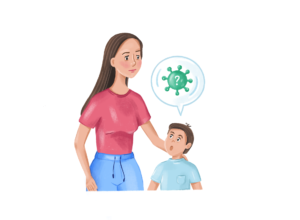 It’s natural to worry about our children, but how do you know if your child is a late talker or has a language delay? It could be baby not using gestures or babbling, a toddler not talking or is difficult to understand, a preschooler not able to follow simple instructions or identify colors and descriptive concepts (for example, little vs big).
It’s natural to worry about our children, but how do you know if your child is a late talker or has a language delay? It could be baby not using gestures or babbling, a toddler not talking or is difficult to understand, a preschooler not able to follow simple instructions or identify colors and descriptive concepts (for example, little vs big).
Sure, you can try and look it up on the internet, but you can find hundreds, if not thousands of websites with answers. Not only is it confusing, it’s difficult to know which ones you should you believe.
It can be confounding if a family member, friend, or teacher alerts you that your child seems to be behind in their speech or language development. We encourage you to contact First Words Speech Therapy, we provide a comprehensive evaluation for a variety of speech, language, and occupational needs. We are dedicated to providing personalized care to meet your child’s speech and language needs.
So how do you know if your child is a late talker or have a speech delay?
If you have any questions or concerns about your child’s speech or language development, it is important to speak with a trained professional, speech therapist. This will give you a definitive answer and put your mind at ease.
What is a late talker?
According to The Hanen Centre, “How to Tell if Your Child is a Late Talker – And What to Do About It,” explains, “A “Late Talker” is a toddler (between 18-30 months) who has good understanding of language, typically developing play skills, motor skills, thinking skills, and social skills, but has a limited spoken vocabulary for his or her age. The difficulty late talking children have is specifically with spoken or expressive language. This group of children can be very puzzling because they have all of the building blocks for spoken language, yet they don’t talk or talk very little.”
What is a language delay?
The American Speech-Language-Hearing Association (ASHA), explains, “children who continue to demonstrate persistent difficulties acquiring and using language skills below chronological age expectations (by preschool or school age) that cannot be explained by other factors (for example, low nonverbal intelligence, sensory impairments or autism spectrum disorder) and may be identified as having a specific language impairment (language disorder).”
Signs of language problems include
 Birth – 3 Months: Not smiling or playing with others
Birth – 3 Months: Not smiling or playing with others
4 – 7 Months: Not babbling
7 – 12 Months: Making only a few sounds. Not using gestures, like waving or pointing
7 months – 2 years: Not understanding what others say.
12 – 18 months: Saying only a few words.
1 1/2 – 2 years: Not putting two words together
2 years: Saying fewer than 50 words
2 -3 years: Having trouble playing and talking with other children
21/2 – 3 years: Having problems with early reading and writing. For example, your child may not like to draw or look at books.


